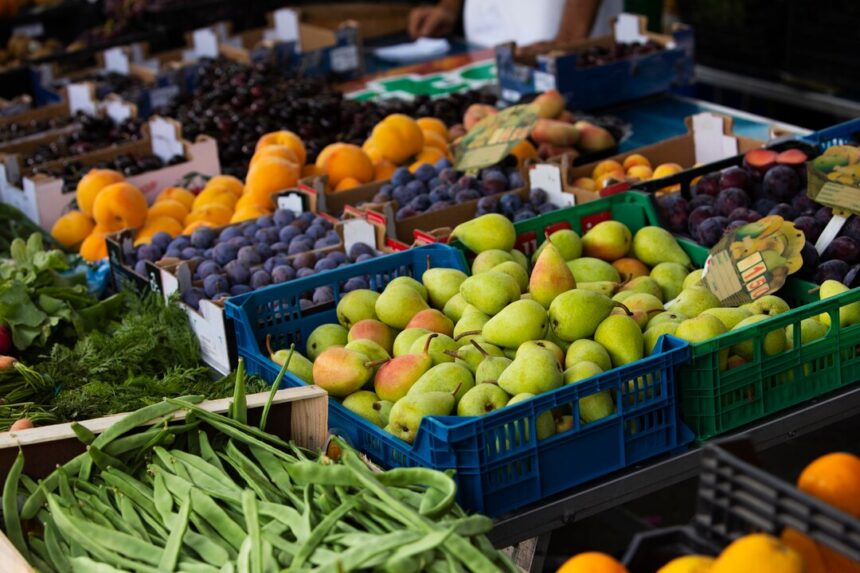South Africa’s diverse climate, fertile soils, and agricultural expertise create an ideal environment for cultivating a wide range of specialty crops. While traditional crops such as maize, wheat, and citrus dominate the agricultural landscape, there is growing interest in niche markets for specialty crops that cater to specific consumer preferences, dietary trends, and culinary demands. In this article, we’ll explore some of the niche markets for specialty crops in South Africa and the opportunities they present for farmers and entrepreneurs.
1. Indigenous Superfoods:
South Africa boasts a rich biodiversity of indigenous plants with unique nutritional properties and health benefits. Indigenous superfoods such as moringa, baobab, rooibos, and buchu are gaining popularity in local and international markets for their high nutritional value and medicinal properties. Cultivating and marketing indigenous superfoods can provide farmers with lucrative opportunities in the health and wellness sector.
2. Organic Produce:
With increasing consumer demand for organic and sustainably grown produce, there is a growing market for organic specialty crops in South Africa. Organic fruits, vegetables, herbs, and spices command premium prices in domestic and international markets, offering farmers an opportunity to differentiate their products and capitalize on the growing organic food movement.
3. Exotic Fruits:
Exotic fruits from tropical and subtropical regions are in high demand among consumers seeking unique and exotic culinary experiences. Specialty crops such as dragon fruit, lychee, passion fruit, and papaya have a niche market in South Africa, catering to upscale restaurants, specialty stores, and gourmet food enthusiasts.
4. Microgreens and Sprouts:
Microgreens and sprouts are gaining popularity as nutrient-rich superfoods packed with vitamins, minerals, and antioxidants. These delicate greens are used as garnishes, salad ingredients, and health supplements, commanding premium prices in niche markets such as upscale restaurants, health food stores, and farmers’ markets.
5. Heirloom Varieties:
Heirloom vegetables and fruits are traditional varieties that have been passed down through generations for their unique flavors, colors, and culinary characteristics. Growing heirloom varieties of tomatoes, peppers, beans, and melons allows farmers to cater to niche markets of gourmet chefs, food enthusiasts, and heritage produce aficionados.
6. Specialty Herbs and Spices:
South Africa’s diverse climate and ecosystems support the cultivation of a wide range of herbs and spices with unique flavors and aromas. Specialty crops such as saffron, vanilla, cardamom, and lemongrass have niche markets in the culinary, fragrance, and cosmetic industries, offering farmers opportunities for value-added products and export markets.
7. Edible Flowers:
Edible flowers are increasingly used as decorative garnishes and culinary ingredients in haute cuisine and gourmet dining. Specialty crops such as nasturtiums, violets, marigolds, and pansies have niche markets among chefs, caterers, and artisanal food producers looking to elevate the visual appeal and flavor profiles of their dishes.
8. Heritage Grains:
Heritage grains are traditional varieties of wheat, barley, oats, and other cereal crops that have been preserved for their unique flavors, nutritional qualities, and cultural significance. Specialty crops such as heirloom wheat, ancient grains, and gluten-free varieties have niche markets among artisan bakers, craft brewers, and health-conscious consumers.
9. Culinary Mushrooms:
Cultivating specialty mushrooms such as shiitake, oyster, and porcini can provide farmers with lucrative opportunities in the culinary and gourmet food sectors. These flavorful and nutritious fungi are prized for their umami-rich taste and versatility in a wide range of culinary applications, from soups and sauces to stir-fries and risottos.
10. Hydroponic Produce:
Hydroponic farming allows for the year-round cultivation of specialty crops such as gourmet lettuces, salad greens, and culinary herbs in controlled indoor environments. Hydroponically grown produce is prized for its freshness, flavor, and nutritional value, making it popular among health-conscious consumers and upscale restaurants.
In conclusion, exploring niche markets for specialty crops presents exciting opportunities for South African farmers to diversify their agricultural enterprises, meet evolving consumer demands, and capitalize on emerging trends in the food and beverage industry. By cultivating unique and high-value crops tailored to niche markets, farmers can enhance profitability, sustainability, and resilience in the face of changing market dynamics and global competition. With creativity, innovation, and strategic marketing, South Africa’s specialty crop producers can carve out a niche for themselves in the vibrant and diverse landscape of the agricultural sector.







